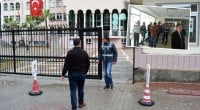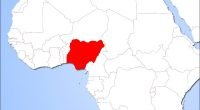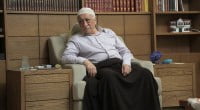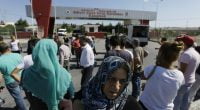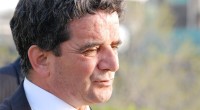Turkish Olympiads and achieving peace

Date posted: June 19, 2013
ORHAN OĞUZ GÜRBÜZ
A utopia ushers in a new era. We explore and take courageous actions thanks to our dreams of what is possible.
Turkish colleges around the world are sponsored by entrepreneurs who are members of a movement in Turkey that has made serious progress in creating this utopia. If you describe languages, religions, races and continents as meeting points rather than as points of discrimination, you can be comfortable becoming involved in global communication and friendship. Turkey, which experienced joy and enthusiasm with the 11th International Turkish Language Olympiad, is also curious about the stories behind this festivity. To better understand these colleges and schools as Turkish brands and the educational activities performed by the civil society initiatives of private entrepreneurs, a variety of answers, including those making use of different analogies, are offered to the public. It is argued that graduates from these schools will create trade bridges in the future because they have established strong communications between peoples. Without a doubt these schools will help facilitate the development of multidimensional relations between nations in the future. It is obvious that these colleges will make a huge contribution to the future of home and host countries due to the high quality education they offer.
Inevitably, Turkey will assume a huge role in world peace and the alliance of nations. However, the primary factor that makes these colleges and schools a success story and islands of hope for the future is that the idea of peace and friendship is the ultimate goal of this endeavor. In the great utopia built by the members of the movement of volunteers that is being extensively and strongly supported by people in Turkey, humane development, trade and international political relations may find a suitable place as secondary outcomes as well. However, the primary goal in the existence of these colleges is to build bridges of brotherhood. It is also about creating a model that respects pluralism — different cultures and faiths — a relationship based on brotherhood and friendship and lifestyle. There is a story and dialogue that is narrated in almost all sacred scripts. Cain and Abel, sons of Adam, had a fight. Cain unjustly killed his brother in this fight.
God asked Cain, “Where is Abel?” He replied: “I don’t know. Am I my brother’s keeper?” This question has been a major underlying notion in a number of issues that philosophers of ethics and society have been discussing for centuries. Some interpreted the idea of one’s keeping an eye on their brother as the pretext for creation of a disciplinarian society and a source of legitimacy for such a social order. The world is trying to redefine society-individual relations in the post-modern era. In essence, a relationship of brotherhood among members of a society cannot be regarded as a mechanism that legitimizes attempts to tame and impose terms on others. When they define the others as a brother, people may be able to create a new culture of coexistence.
The story of Hasan Luena, who, after graduating from Türkiye Feza College in Tanzania, started to work as a teacher in the same school, offers some insights on notions of brotherhood and dedication. What most impressed Luena, who graduated from the biology-chemistry department at Darussalam University and then started to work as biology teacher at Feza College, was that he saw his teachers construct the new building for the school: “Although the new semester was about to start in January, the building was not ready in December. I went to the construction site. The teachers were building it. There was an accountant; I saw him carry beds. There was a teacher trying to install the windows. Teachers were building a new school with their bare hands so that the building would be ready by January. I was impressed by this.”
Whether or not one should keep an eye on others to achieve peace could be a philosophical discussion. However, we can rest assured that those who worked shoulder to shoulder in the construction of these schools would not allow artificial walls like a clash of civilizations divide humanity.
Source: Today’s Zaman, 15 June, 2013
Tags: Turkey | Turkish Olympiads |

